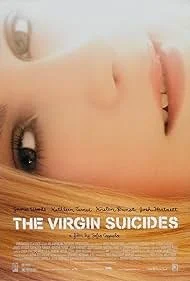Idealization of Abuse in Modern Novels
Photo from Amazon.
Violet Rhoades
Content warning: Mentions of physical, emotional, and sexual abuse.
TikTok’s proclaimed “BookTok” has proven to produce and popularize hundreds of novels in a variety of genres and topics. As a self proclaimed book enthusiast, I was immediately enticed upon discovering an author named Colleen Hoover, whom many were calling ‘The Modern Day Jane Austen’. Some were even going as far to compare her works to Jane Eyre and Persuasion. From that point on, it was an easy choice for me to pick up one of her most famous “romance” novels, November 9.
To say I was mortified while reading it, though, would be the understatement of the century. The entire novel is a continuous romanization of stalking, abuse, arson, and even sexual assault. Many scenes depict the male lead Ben forcing the female lead Fallon to wear outfits she's uncomfortable with. There's a point in which Ben tries to get Fallon to wear an extremely revealing dress even when she explicitly states she is uncomfortable with it, eventually causing Fallon to have a very apparent panic attack. Instead of comforting her though, Ben unbuttons her shirt and pants, to forcibly put the dress on her. Throughout the books, he chooses not only what she wears, but also what she eats, and who she hangs out with. Constantly belittling her intelligence, he uses her for whatever he wants, wherever he wants. The saddest part is that Fallon constantly complies, even if every part of her is screaming at her not to. Without a doubt though, the most nauseating scene portrays a drunk Fallon being taken advantage of by the completely sober Ben. Fallon goes as far to say, “‘Stop,’ . . . [her] voice louder than it’s been all night.” Unsurprisingly, Ben continues touching her. “I’m trying. Ask me again” (Hoover, 2015). Hoover has recently taken this scene out of new prints, only after facing severe backlash.
This raises something far bigger than other points in this book, as it is normalizing rape culture. Despite being marketed for people ages seventeen and over, girls as young as ten have been picking up the book due to its popularity. Many of them are likely to have seen it marketed as a cute love story, only to find the traumatic scenes that have occurred. With an audience that young, their impressionable minds will normalize this behavior unless anyone has taught them any different. Rape is an extremely sensitive topic that isn’t taught in many schools, especially in the elementary/lower middle school level. Not knowing any better, many children will assume the actions from the book are normal, despite the depiction of an abusive, unhealthy relationship.
It's not just Hoover that has essentially taken a psychological horror and labeled it ‘dark romance’ as an attempt to cover more audiences. Hundreds of new and upcoming writers are doing the exact same thing, and people continue to enable their behavior by supporting their books, despite the dangerous repercussions that come with them.
Many claim that younger audiences shouldn't be reading those kinds of books anyway, and “if you don’t like that style of book, just don’t read it,” but at the end of the day, it's so much more than a matter of preference. Wrongfully labeling these kinds of novels is essentially romanticizing the mental abuse, physical abuse, and sexual assault that takes place within them.
I’m not trying to tell you what you can and can’t like. All I’m saying is that taking abuse to that extreme in novels and marketing it as romance to thousands around the world is likely to do more harm than good. There are countless books out there and countless amazing writers that come with them. You don’t have to limit yourself to authors that care about nothing more than a cash grab with no regard to how their actions may affect their audience.






